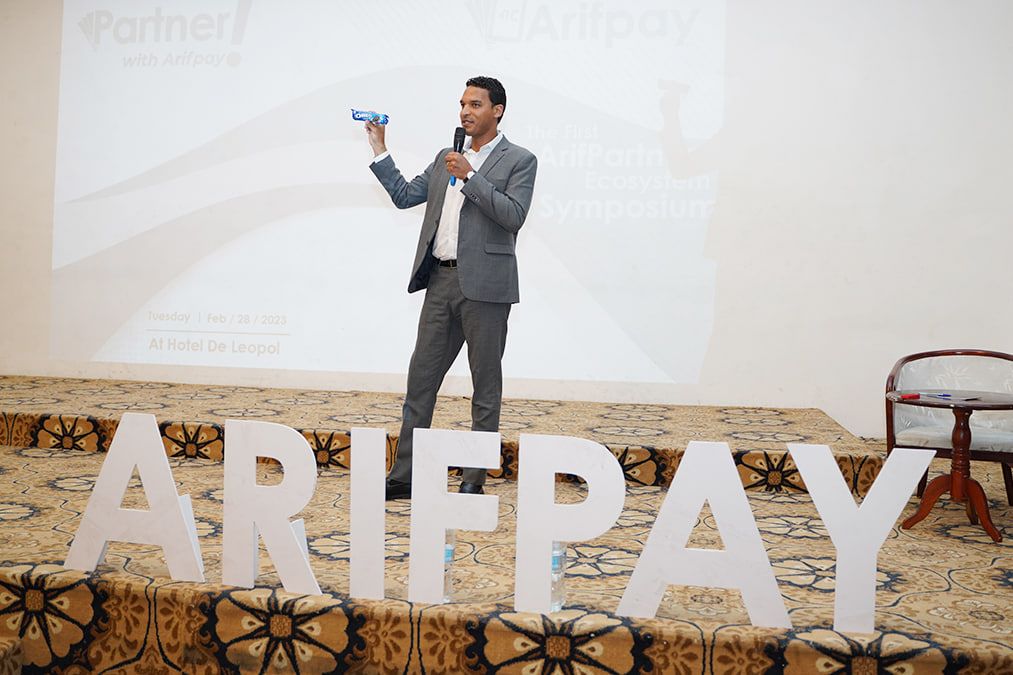Progress for 0 ad


Kaleab Girma
Addis Ababa, Ethiopia

“Why do you think Ride became successful in Ethiopia?” asked Mike Endale, a prominent name in Ethiopia’s startup ecosystem who spoke at a symposium held last week by fintech Startup Arifpay.
The founder of Moxit and a tech innovator who recently returned to Ethiopia after his company was acquired by Wonder School added that the topic of Ride’s success was discussed quite often in his circles.
“After a while, a friend of mine said it was because of cobblestones,” Mike added.
In early 2005, the concept of using cobblestones to construct roads was first introduced to Ethiopia. Three years after being introduced to other major urban centers, cobblestones finally found their way to Addis Ababa. Thousands of youth formed small and micro-enterprises and spent their days paving stones and building cobblestone roads across the country.
A few years down the line, the solution, which was initially adopted due to its economic advantage, has led to the birth of a new economic sector that’s quite impressive, according to Mike.
“If it were not for the cobblestone, Addis roads would not have been accessible for drivers. In a sense, the cobblestone was one of the major building blocks for the fast-growing ride-hailing sector we see today,” Mike explained to the crowd of startup enthusiasts.
“What cobblestone is for ride-hailing is what fintech is for SMEs in Ethiopia,” added Mike connecting his anecdote to the purpose of the First ArifPartners Ecosystem Symposium.
It’s been four months since Arifpay became the first payment system operator to receive commercialization permission from the National Bank of Ethiopia to provide financial services as a Payment Gateway Operator and Point of Sale (POS) Machine Operator.
Combining the two, Arifpay aims to kickstart what it calls a “Digital Payment Infrastructure Revolution.” However, POS is at the heart of its initial operation, and the Arifpay payment gateway is scheduled for release in a few months.
“Ethiopian banks have never been big on POS machines. There are less than 11,000 POS machines in the country. “Fifty percent of them are located in the banks, and you can locate the remaining 50 percent at hotels, restaurants, and supermarkets,” Melka Girma, Marketing and Partnerships Director at Arifpay, told Shega.
Melka argues that banks have never viewed POS as a core aspect of their business, resulting in a significant gap. Ethiopia has 30 million debit cards, and connecting these cards to devices that accept them is a crucial step for the fintech startup in developing a digital economy.
Arifpay provides smart POS machines that are much cheaper than the POS machines used by banks. In addition, Arifpay is deploying mPOS, a system that allows a tablet or smartphone to function as a cash register and connects customers, merchants, and banks.
Any smartphone or tablet can be transformed into an mPOS with a downloadable mobile app and card reader that connects to mobile devices.
By promoting the culture of accepting payments with Smart and Mobile POS devices, Arifpay says merchants will be able to increase their business by reducing the number of steps consumers take to complete their purchases.
Now gearing up to reach its customers and mass deploy its product, the startup held an event on February 28, 2023, bringing together senior executives and experts from its partner organizations, showcasing how they can work and grow together while creating a digital payments ecosystem in Ethiopia.
Among the other speakers besides Mike were Markos Lemma, co-founder & CEO of iceaddis; Yared Endale, senior digital financial services director at the Cooperative Bank of Oromia; and Amha Wondimu, co-founder and CTO at ZALATECH.

The discussion focused on the crucial role of micro, small, and medium-sized enterprises (MSMEs) in Ethiopia’s economic growth and job creation, particularly in the country’s mission to transition into a middle-income country and reduce poverty. With SMEs employing most of the urban working population, their success is essential to Ethiopia’s potential path out of poverty.
Arifpay aims to empower Ethiopia’s MSMEs by helping them survive, grow, and eventually become successful large enterprises. To achieve this goal, the startup plans to offer an efficient financial transaction system with lower costs, encouraging MSMEs to adopt digital technology. The vision is fitting for the $3.5 million Arifpay raised from investors in 2021.
However, with 75% of Ethiopia’s population being unbanked or underbanked, Arifpay acknowledges that it cannot achieve its goal alone. Therefore, its go-to-market strategy involves working through commercial partners.
These partners working with Arifpay based on various models are expected to push the startup’s POS devices into the public and into the hands of Ethiopia’s neighborhood merchants and shops.
Arifpay offers various partnership modalities to help businesses and organizations leverage its digital payment technology. These partnership modalities can be broadly classified into categories such as Value Added Resellers, Resellers, System Integrators/Implementers, Managed Service Providers, Service Delivery Partners, Strategic Partnerships, ICT Consultants, Trainers, and Independent Software Vendors.
“Value Added Resellers (VARs) offer Arifpay solutions to their merchants along with their own add-on services and offerings. This includes customization, installation services, professional services, training, technical and marketing support, implementation services, and other additional offerings. VARs help personalize the solution to fit the end user’s unique needs,” Melka told Shega.
Resellers, on the other hand, broker and sell Arifpay solutions in their original form on behalf of Arifpay. They act as intermediaries between Arifpay and their merchants.
System Integrators/Implementers (SIs) are tech partners who combine the hardware and/or software components of third-party vendors, including Arifpay, to build a custom system. They break into the lucrative enterprise market and meet their customers’ needs.
“Managed Service Providers (MSPs) provide ongoing technical support and management of an Arifpay customer’s (a merchant’s) IT infrastructure and end-user systems typically on a proactive basis. MSP offerings typically include network maintenance, hardware repair, help-desk support, email management, and any other function that requires a day-to-day administrator to keep processes, workflows, and systems running smoothly,” explains Melka.
Service Delivery Partners (SDPs) offer a host of services under their jurisdiction. They do not resell a product or software, but rather enhance the value of Arifpay solutions to the end-user by providing a range of services, from pre-sales consulting to installation to managed services. This helps to personalize the solution to fit the end user’s unique needs.
Strategic Partnerships (SPs) are collaborations between Arifpay and other organizations to leverage each other’s expertise, relationships, distribution channels, and/or competitive market reach for mutual benefit.
ICT Consultants help businesses and organizations adopt Arifpay’s digital payment technology by advising them. Meanwhile, Trainers collaborate with Arifpay and support implementation by training Arifpay merchants, client organizations, and other ArifPartners about Arifpay products and services.
And finally, Independent Software Vendors (ISVs) build, develop, and sell software (SaaS), websites, and other IT solutions that are consumed by different users, integrating their products with Arifpay solutions.
These partners working with Arifpay based on various models are expected to push the startup’s POS devices into the public and into the hands of Ethiopia’s neighborhood merchants and shops.
With hundreds of partners onboarded, Arifpay aims to reach 10,000–15,000 merchants in three years, deploying around 22,500 POS machines throughout Ethiopia.
However, Arifpay is not the only company catering to MSMEs. Its competitors, such as SantimPay and Chapa, are also implementing strategies for this market. While the competition continues, one thing is clear: there is already significant hope placed on these startups, and many, like Endale, hope that they will become the catalyst for MSMEs’ growth, similar to “how the cobblestone was for ride-hailing”.
👏
😂
❤️
😲
😠

Kaleab Girma
Kaleab Girma, an Addis Ababa-based reporter and researcher, with over six years of experience in the field. He currently serves as Shega's Editor-in-Chief and specializes in reporting on small businesses, innovation, technology, and startups in Ethiopia.
Your Email Address Will Not Be Published. Required Fields Are Marked *